On October 20, 2025, Paul Ingrassia’s nomination to lead the U.S. Office of Special Counsel collapsed after leaked private messages revealed racist and extremist language. Ingrassia, 30, had been expected to face Senate confirmation later in the week. The messages, published by Politico, included remarks such as “Never trust a Chinaman or Indian” and references to having “a Nazi streak.”
Within hours, multiple Republican senators publicly withdrew their support, effectively sinking the nomination. Senate Majority Leader John Thune stated, “He’s not going to pass,” signalling rare bipartisan agreement on a Trump nominee.
Why this position matters
The Office of Special Counsel is an independent federal agency responsible for protecting whistleblowers and investigating workplace discrimination inside the U.S. government. The Special Counsel holds a five-year term and broad legal powers, including issuing subpoenas, recommending disciplinary actions, and compelling agencies to act on discrimination complaints.
Ingrassia’s leaked messages stand in direct contradiction to the principles he would have been responsible for enforcing. His comment targeting Indian and Chinese people raised alarms in minority communities — especially among Indian Americans, who make up a significant portion of the federal workforce in sectors like tech, medicine, and engineering.
Context: a growing controversy
Concerns about Ingrassia’s past had circulated for months. His ties to far-right figures, including white nationalist Nick Fuentes and influencer Andrew Tate, were publicly known. His July confirmation hearing was postponed after senators raised concerns over previous inflammatory statements. An earlier sexual harassment complaint, later withdrawn, had also complicated his nomination.
What changed on October 20 was the scale and content of the evidence. The leaked Telegram messages spanned thousands of pages, showing sustained racist rhetoric over several months. Two participants confirmed the authenticity of the chats.
India and the Indian-American angle
The racial slur against Indians came as a shock to many in the Indian American community, which has been growing politically influential. Vivek Ramaswamy — a former Republican presidential candidate and one of the individuals Ingrassia mentioned — declined to comment publicly, but Indian American organizations expressed concern about what the episode reveals about prejudice in public office.
Indian Americans comprise roughly 5.2 million people in the U.S., with significant representation in federal agencies. If confirmed, Ingrassia would have overseen investigations into workplace discrimination complaints — including those filed by Indian-origin federal employees.
For India, which has been steadily deepening diplomatic and trade engagement with Washington, the remarks are politically uncomfortable. While the controversy is domestic, the language of a high-profile nominee can ripple through bilateral perceptions.
The AI defense — and its limits
Ingrassia’s attorney suggested that some of the messages might have been fabricated using AI. This line of defense reflects a growing trend in political scandals: invoking deepfake or AI manipulation to cast doubt on damaging evidence. In this case, Politico verified the authenticity of the messages through metadata and interviews with group members.
This raises a broader accountability challenge: as AI tools improve, proving what is real may require more time, resources, and specialized expertise — giving public figures more room to deny or deflect.
A failure of vetting
What makes this story larger than a single scandal is how close the system came to elevating someone with these views into a role tasked with enforcing civil rights protections. Ingrassia was nominated in May, and concerns about his affiliations were public months ago. Yet no action was taken until private messages surfaced three days before the vote.
This points to three issues: weak internal vetting, tolerance of extremist rhetoric until it becomes politically costly, and overreliance on leaks to prevent problematic appointments.
The broader impact
For minority communities — including Indian Americans — the controversy is a reminder of vulnerabilities within federal institutions. For whistleblowers and federal employees, it raises questions about trust in watchdog agencies. For U.S.–India relations, it adds an uncomfortable cultural undertone at a time when both governments are emphasizing partnership.
While the nomination has collapsed, the episode underscores a deeper institutional challenge: what happens when prejudice isn’t discovered, or isn’t politically inconvenient enough to act upon?
FAQ
1) Who is Paul Ingrassia?
A 30-year-old Trump nominee to lead the U.S. Office of Special Counsel (OSC), previously a DHS liaison and conservative commentator with prior private-practice ties to high-profile clients.
2) What did the leaked messages say?
Screenshots from a GOP group chat attributed to Ingrassia included slurs (e.g., “Never trust an Indian”), self-descriptions like having a “Nazi streak,” and other racially charged comments.
3) What is the Office of Special Counsel (OSC)?
An independent federal watchdog that protects whistleblowers and investigates prohibited personnel practices—including discrimination—across U.S. government agencies.
4) Why is this nomination uniquely sensitive?
Because the OSC leader oversees discrimination and retaliation complaints; explicit bias by its chief would undermine confidence in impartial enforcement.
5) Are the messages authentic?
Ingrassia’s counsel implied possible AI manipulation. The reporting outlet said it verified the phone number and obtained corroboration from participants; the context spanned months of messages.
6) What’s the status of the nomination now?
Multiple Republican senators signaled opposition after the leak; leadership indicated the nomination would not pass. Practically, it’s considered collapsed.
7) What does this mean for Indian Americans?
Indian-origin federal employees and complainants would reasonably question fairness if a leader expressing anti-Indian views were confirmed. The larger Indian-American community reads this as a signal about tolerance of bias in public office.

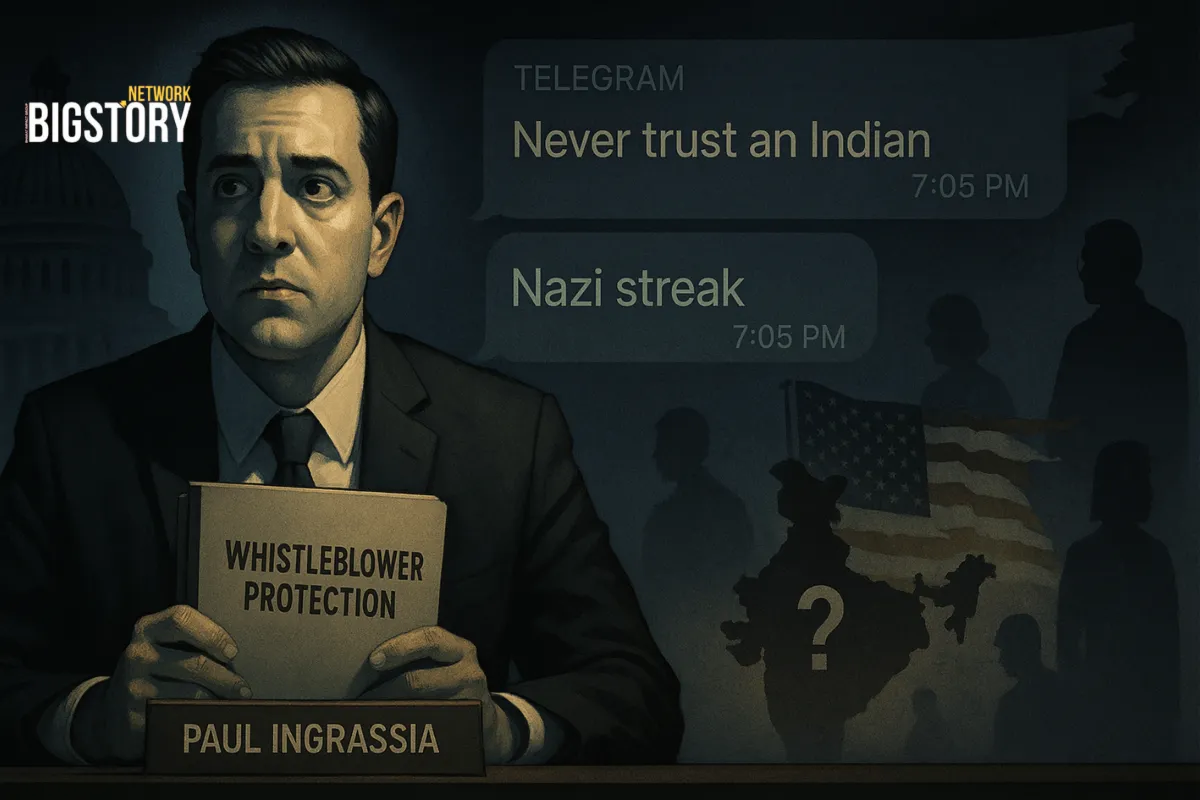
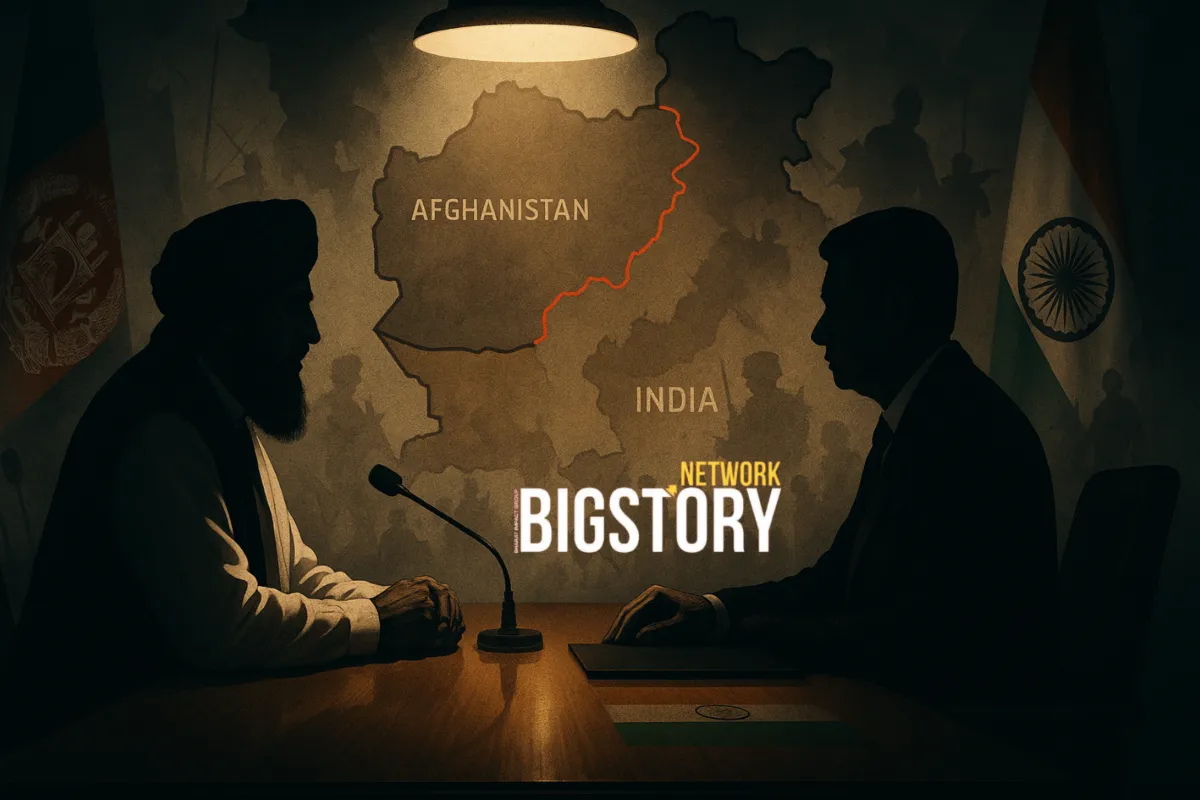
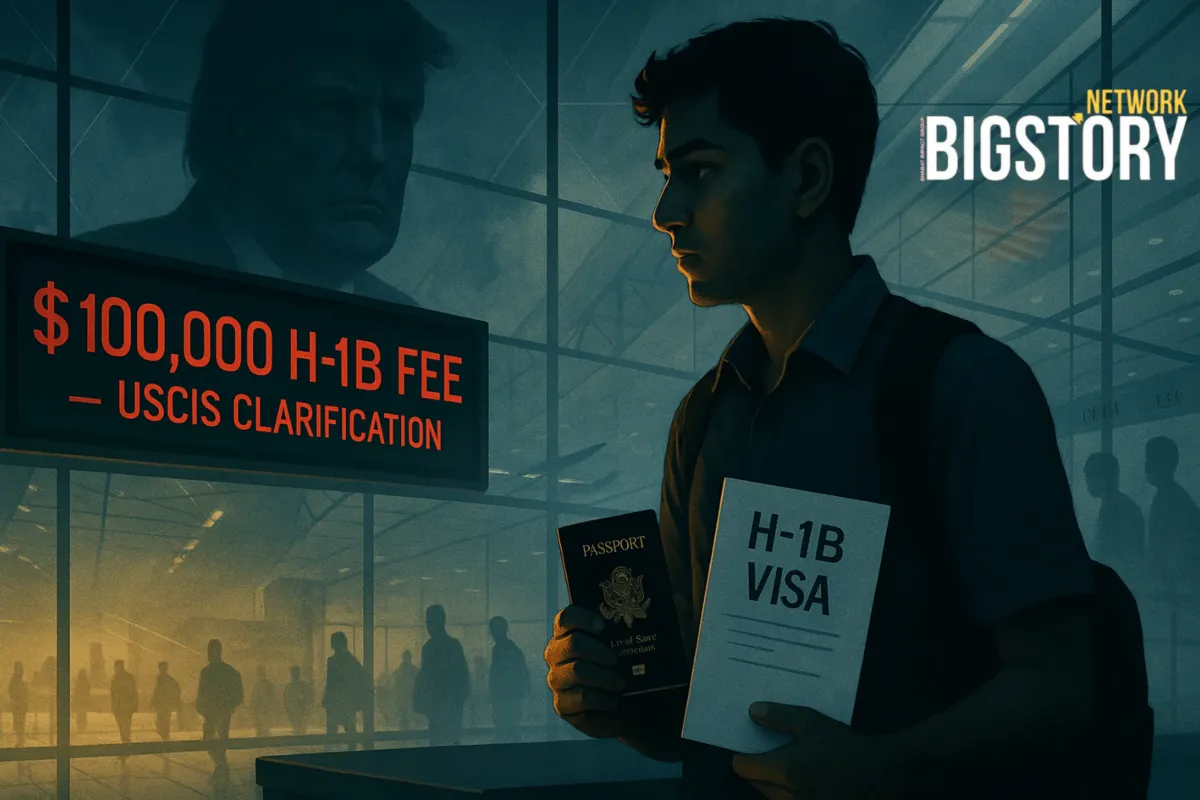
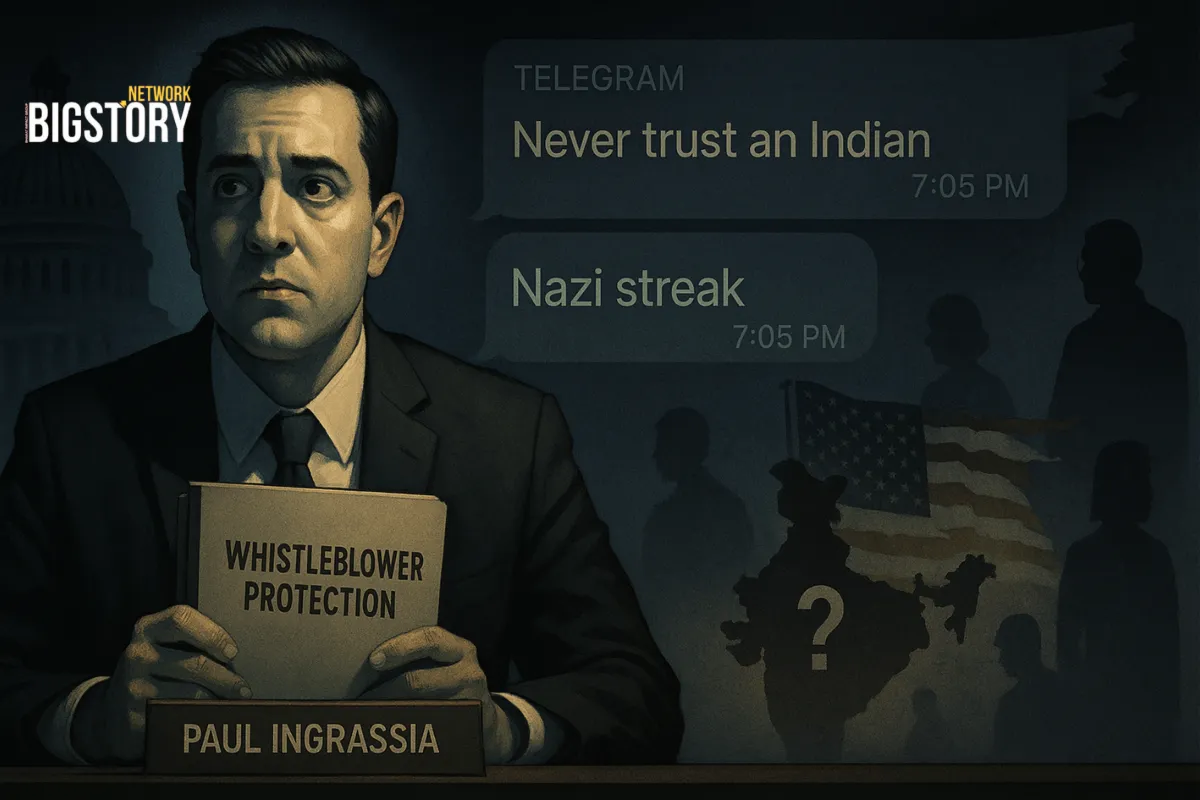
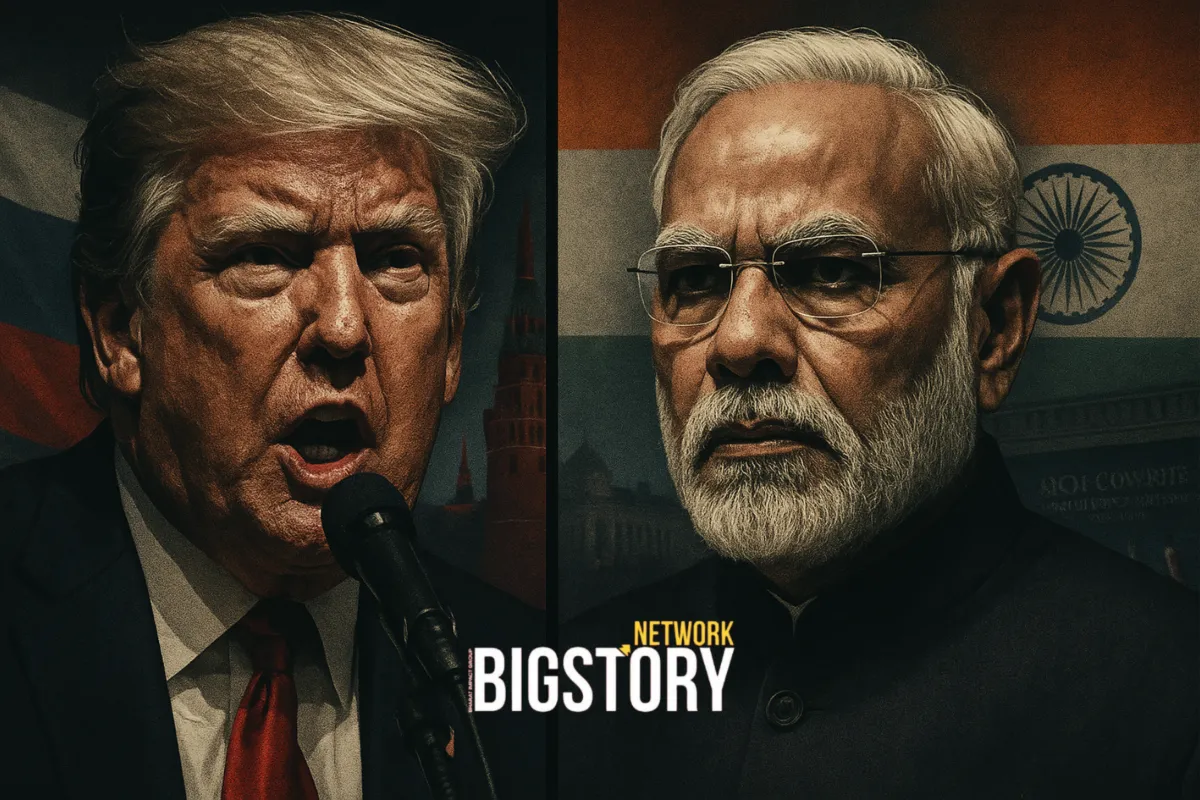

Leave a Reply